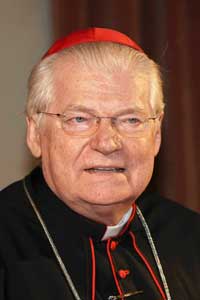At heart, most Catholics are Protestants, and even in Poland religion has become less important: Does the Vatican still stand a chance in Europe?
Until the 15th century, the Catholic Church practically existed only in Europe. So how to measure today’s faith in the most secularized of all continents, the problem child of the resigning Pope? (To take an extreme example: In an international survey in 2012, almost 60 percent East Germans stated, to have never believed in God, in the U.S. only four percent.)
According to the statistical yearbook of the Vatican, Europe is currently home to nearly a quarter of all Catholics in the world, and its share on the total European population has changed only slightly in recent decades. But what is a “Catholic”?
According to the Statistical Yearbook of the Vatican, Europe is currently home to nearly a quarter of all Catholics in the world, and its share on the total European population has only changed slightly in recent decades. But how to define a “Catholic”?
Baptized equals Catholic?
In Germany, Austria and Switzerland, there is the so-called Church-tax, i.e. a federally registered membership, including the option to leave the Church. Which is reflected in the declining number of members (of which by the way, Protestants are affected equally or even more, despite missing celibacy and woman priests).


